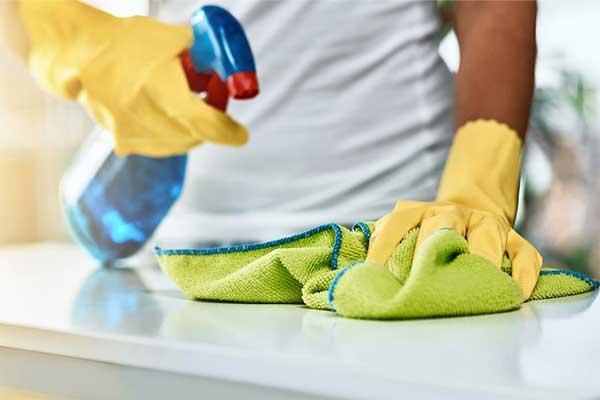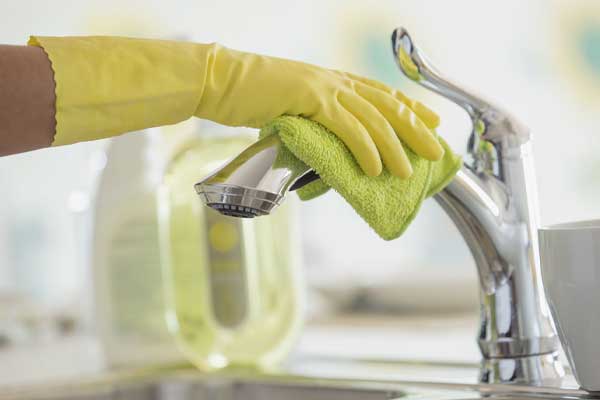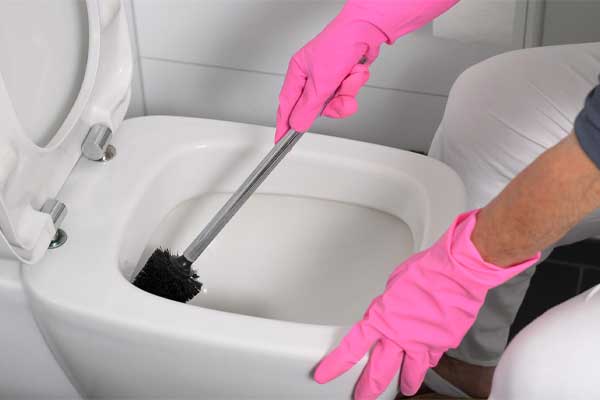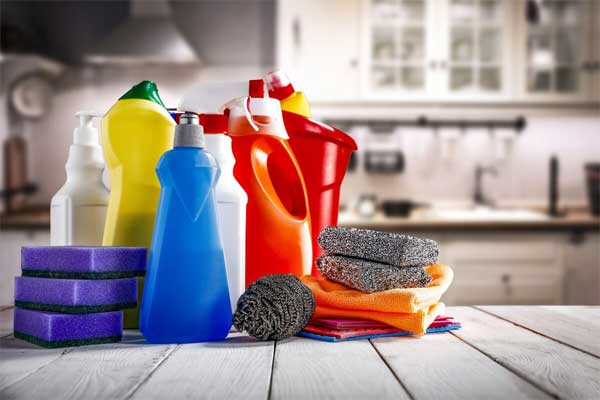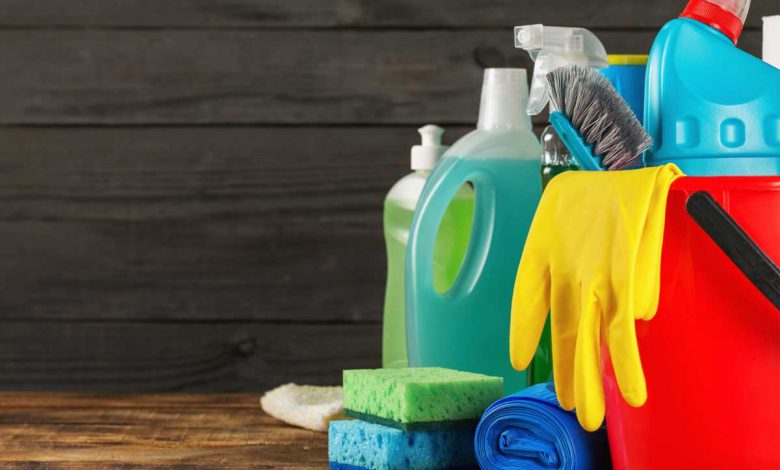
Types of acidic cleaners and their application
There are several types of acid cleaners, the best of which depends on your application. Here are some common types of acid cleansers:
Citric acid
Citric acid is great for use in the kitchen. As the name implies, this acid is found in citrus fruits, especially sour lemons. Citric acid is a natural disinfectant that kills mold and bacteria, so it is also great for cleaning countertops and cutting boards to get rid of germs after preparing raw meat.
Citric acid can remove soap scum, hard water stains, calcium deposits and rust, and is often used as a flavoring and preservative for foods. In home canning, it can be added to foods to increase their acidity and prevent the growth of harmful bacteria.
Phosphoric acid
Phosphoric acid is a weaker acid, often used in ceramics, porcelain and concrete to remove mineral deposits and rust. It is not an edible acid, which makes it relatively safe to work with. But phosphoric acid can also damage natural stones such as marble, granite and limestone. This acid is abundant in detergents.
Oxalic acid
Oxalic acid is primarily used as a bleaching agent and rust remover, which is found naturally in many plants, including parsley, rhubarb and spinach. This acid is great for lightening wood in preparation for painting and can remove many types of stains from stone and vinyl surfaces.
Sulfamic acid
Sulfamic acid is commonly used in household cleaners to remove metal and ceramic deposits. It is also effective in dissolving hard water sediments and removing dried cement and mortar residues from concrete and building materials. Safe cleaning without the need for secondary washing and high durability are the advantages of this type of acidic cleaners.
Moriatic acid
Moriatic acid is a less pure form of hydrochloric acid. It is highly corrosive and is one of the most dangerous acids for humans. Therefore, you should use this acid only in cases where you need a stronger cleanser.
This acid is used in construction to remove dried cement from bricks, stones and other surfaces. But it is very harmful to plants, so try to keep this side away from grass and other plants. It can also help clean ugly stains from the walls and floor of the pool and balance the pH level of the water.
How to use citric acid cleanser at home
Here are six of the best uses for citric acid:
1- Cleaning the kettle and boiling coffee
This is probably one of the most common uses for citric acid. If your water is particularly hard, your kettle will probably have the highest accumulation of lime. If you add acid to hot water, you can easily remove the masses. This is when the acid attacks the lime deposit and dissolves it completely.
2- Removing dishwasher scale
Another problem with hard water is that the detergent does not dissolve completely. This can lead to a build-up of soap scum, which can become a breeding ground for bacteria. To solve this problem, just add two teaspoons of citric acid and one tablespoon of sodium bicarbonate (baking soda) to your dishwasher to clean it.
3- Cleaning the washing machine
Your washing machine can suffer the same fate as your dishwasher, but the accumulation of lime and detergent deposits will cause more damage to the washing machine. Two teaspoons of this acid and one teaspoon of baking soda are enough to clean the washing machine. You should do this every 2 to 4 weeks.
4- Removing lime deposits from valves
Most people just buy a bottle of lime scrub spray and never look at the chemicals in it. They are not only harmful to the environment and possibly your health, and often do not work well as citric acid. To use citric acid to clean all sinks and faucets in the house, just mix a few tablespoons of it with warm water and remove limescale.
5- Removing hard water stains
Your toilet bowl is another place where you will notice the gradual accumulation of water stains. Hard water blocks are very difficult to remove. Use the same mixture you use for valves to remove these stains. Spray the solution on them every time you clean the toilet bowl.
6- Disinfecting house surfaces
Citric acid is also a powerful antimicrobial, so you should also use this green cleanser for other parts of your home such as kitchen counters, tables or other surfaces where you eat. To disinfect these surfaces at home, just mix a few tablespoons of it with warm water in a spray bottle and add a few drops of essential oil to make your home smell clean as it is.
tip: To prevent damage to some surfaces in the house, I recommend that you keep citric acid away from any natural stone such as stone tiles, marble or quartz. You should do the same with brass faucets, jewelry or antiques.
Maintain safety when using acidic cleaners
Even at low concentrations, these cleansers can be uncomfortable in contact with the eyes and skin, and inhaling the vapors can be very irritating to the throat. Higher concentrations can cause chemical burns that may even require hospitalization.
That’s why it’s important to take all possible precautions to protect yourself. First of all, never keep your acid cleaners out of the reach of children. He has found a place that is too high for them to reach or it is better to have a door that closes.
Wear a long-sleeved shirt and full-length pants to minimize the amount of skin that is exposed to acid. Wear clothes that are easy to get dirty with because acidic cleaners can easily discolor most fabrics. You will also need safety goggles and a pair of thick rubber gloves. Open doors and windows and turn on a fan for better ventilation. When working indoors, be sure to use a mask or respirator to avoid inhaling acid fumes.
Always keep a bucket of clean water near you when handling acids. This bucket is useful for washing surfaces after cleaning, and in case of unwanted spraying of some acid on the skin or clothes, this makes it easy to neutralize the acid. It is also a good idea to have baking soda or another neutralizing agent available when using stronger acids.
When diluting acids, you should always add acid to the water, not the other way around! Adding water to the acid can cause a dangerous chemical reaction that causes bubbles to form and potentially seep out of the container. You should also make sure that you are using a container made of acid-resistant glass or plastic.
Maintenance of acidic cleaners
Getting rid of used or residual acid cleaners can be almost as complicated as using them safely. Never spill undiluted acids in your toilet or bathroom. These acids can corrode your pipes and cause damage that can be very expensive to repair. If your home has a septic tank, even a small amount of acid can kill the beneficial bacteria needed to break down waste.
Likewise, acidic cleaners should never be spilled on the ground as they can seep into the soil and contaminate groundwater. You may be tempted to just close the container and dispose of your remaining acid cleaner with the rest of your waste, but if the container leaks or punctures, this can be dangerous for garbage carriers.
The acid can cause unexpected chemical reactions with other materials in the landfill. While it is possible to neutralize most acidic cleansers with baking soda, if you do not know what you are doing, this can be a dangerous process and we do not recommend trying it at home. Instead, divert your thinking to good things in life, such as waste disposal in your area. Most cities and towns have places where you can take unused chemicals for recycling or disposal.
last word
If you’ve ever looked at the ingredients in acidic cleansers, you’ll probably find a scary list of toxic chemicals in them. While these toxins may work perfectly well to remove dirt and germs, most of these chemicals get into our plumbing system and cause serious damage to nature. But there is an alternative that every family should consider. Citric acid is one of the best natural acid cleansers found in many detergents. So it is important to look for products that contain this type of acid.

